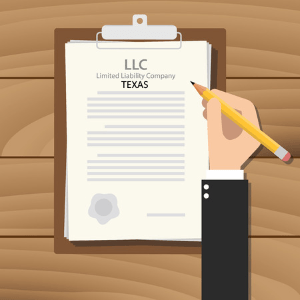
When setting up a new business venture in the Lone Star State, many founders default to a corporation for tax treatment and personal liability protection.
And in some cases, it does make sense to set up a Texas corporation — either a Subchapter S corp or a C corp.
Yet, most of the time, the better choice is forming a Texas limited liability company (LLC).
Why?
- A Texas LLC offers the same liability protections as a corporation does.
- There’s less paperwork (e.g., a simple operating agreement plus formation docs) and time involved to set up and run a limited liability company than is required for a corporation.
- The IRS lets you decide how you want LLC to be treated for income tax purposes.
And, if there’s a single owner (a member), by default the IRS will treat your LLC as a disregarded entity and tax profits as if the business were a sole proprietorship. However, you could elect to have it treated differently. For instance, choose for the LLC to be treated as if it were a Subchapter S corporation for federal taxation.
Not sure what’s the best type of Texas entity to set up for your startup? It’s time for a phone consultation with Texas Business Lawyer Mike Young.
